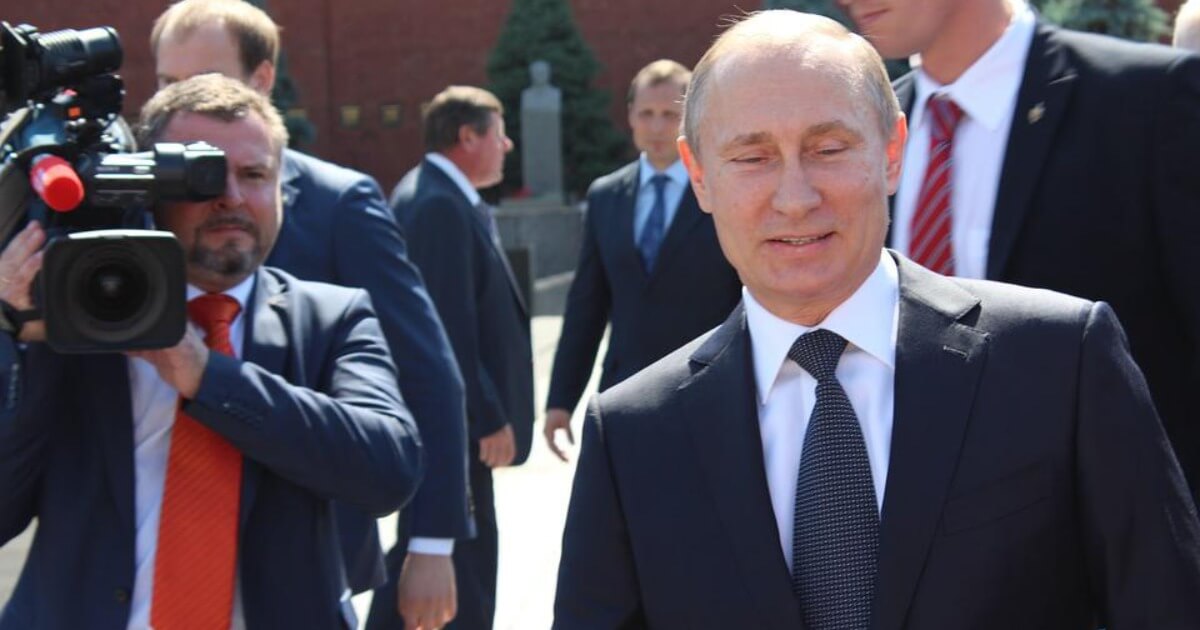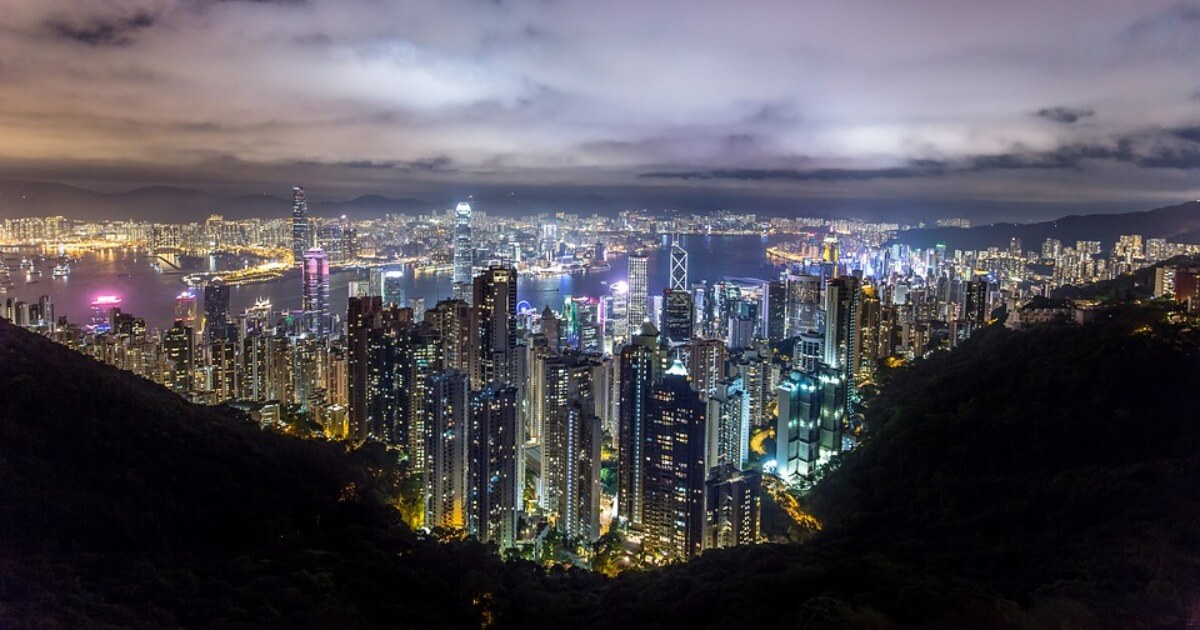Mélenchon as Putin’s Useful Idiot
The leader of France’s left says he runs against what Macron stands for. But despite his populists’ airs, he pushes Putin’s European policy goals.
May 12, 2022

[Note to journalists: You may quote from this text, provided you mention the name of the author and reference it as a new Strategic Assessment Paper (SAM) published by the Global Ideas Center in Berlin on The Globalist.]
France’s partners in the EU did breathe a sigh of relief after Emmanuel Macron won re-election as President of France. But now, in view of the upcoming parliamentary elections – the first round of which will be held on Sunday, June 12, 2022, much of Europe is in worry mode again.
The radical right-wing leader Marine Le Pen and the radical-left leader Jean-Luc Mélenchon are seeking revenge for Macron’s victory in the presidential election. They have a chance to form much stronger groups in the National Assembly. They even hope to crush Macron’s majority – and to use that power base to move France out of the EU.
Prime Minister Mèlenchon?
“Elect me as prime minister!” is Mélenchon’s ask to the French. His call on the voters isn’t really in line with the French constitution, which gives the president the right to appoint the prime minister.
Of course, the outcome of the parliamentary elections has a bearing on the appointment of the prime minister. Mélenchon pursues a political strategy that was unthinkable only a few years ago.
He has unified the political foes on the left and hopes to appeal to the far right in an effort to make Macron suffer defeat by having to appoint an opposition prime minister.
Opposites attract?
France has already experienced what is described as “cohabitation” in the past. This term describes a political reality where a conservative president has to deal with a parliamentary majority of socialists, or the other way around.
That proved workable at the time, because the French constitution secures foreign policy and defense as domains for the president. Economic and social policy are the responsibility of the prime minister. European policy, on the other hand, is the joint responsibility of both.
Presidents Mitterrand and Chirac, who had conservative and socialist prime ministers, respectively, could manage this process because there were no irreconcilable differences between the major parties at the time.
With Macron and Mélenchon, however, the defender of European sovereignty and its gravedigger would be facing each other. France’s voice in the EU would be neutralized at best. Progress on defense, the digital economy, or the ecological turnaround, for example, would no longer be possible.
Mélenchon, the deal maker
To maximize his chances, Mélenchon has made a pact with the Greens, the Socialists and the Communists. Its purpose is to agree on a joint candidate for each parliamentary seat .
Because of the first-past-the-post rule in France, without such an agreement, the votes of parties (and candidates) with a lower voting share would effectively be wasted.
Because the 71-year-old ex-Trotskyist, ex-Socialist received around 22% of the vote in the presidential election, he sees himself in a position of strength as compared to other political forces to the left of Macron.
To get as much of a share of the political pie in France, the Greens, Socialists and Communists have signed up to the deal with Mélenchon.
Sell-out Greens?
But there is a significant political price to pay. The Greens (EELV), for example, have renounced their pro-European substance in exchange for Mélenchon’s promise to give Green candidates the right to be the lead candidate for the bloc in 100 constituencies.
Just a few weeks ago, the Greens’ presidential candidate Yannick Jadot, had exclaimed “We are a pro-European party!”. However, since his haul of the vote was below five percent, his intra-party nemesis, the Euroskeptic Julien Bayou, is now calling the shots. He has been willing to sell the Greens’ European identity for a better shot at more parliamentary seats.
A danger to Europe?
Why is a left-wing bloc led by Mélenchon a danger to Europe? The wealthy ex-senator who always relishes to cast himself as a man of the people pursues a political agenda that in many ways is like that of Marine Le Pen – even though the two represent opposite political poles.
Mélenchon wants to destroy the EU, to lead France out of NATO, to deprive Europe of its own defense capabilities.
In so many ways, Mélenchon’s agenda and deep convictions make him the proverbial “useful idiot” for Vladimir Putin. As further evidence, consider for example how he commented on Putin’s barbaric warfare in Syria: “I congratulate Russia on its actions in Syria.”
In the Russian camp
in January 2021, Mélenchon stated categorically: “Economy, trade, civilization – everything connects us to Russia” – adding that France has always fared well when it sought to close ranks with Russia.
And even during the Russian troop deployment on the Ukrainian border, he stood firmly by Putin’s side: “The Russians are mobilizing their troops on the border? Who wouldn’t do the same in the face of such a neighbor, a country tied to a foreign power and permanently threatening Russia?”
Mr. Frexit
He also denies the idea and purpose of a European defense capability: “The Europe of defense cannot exist, it is only a pillar of NATO.”
Just like the radical right, he says his “Plan A” is “disobedience” to the EU. If he becomes prime minister, France would disobey all parts of EU law that bother him. If the EU doesn’t swallow that, France will just leave: Frexit.
France’s twisted political culture
It speaks volumes about French political culture that such primitive populist theses like the ones Mélenchon presents so eagerly can pass for left-wing politics in the middle of the Ukraine war.
The Socialists, who were most critical in forming the structure and identity of the modern EU with politicians like Mitterrand, Delors and Hollande are, like the Greens, ready for self-sacrifice: Their pale leader Olivier Faure also wants to bow under Mélenchon’s anti-EU yoke.
Thankfully, numerous Socialist elected officials have subsequently accused him of betraying the PS’s identity and refuse to follow his course. Monsieur Faure, however, remains ready to to throw himself on Mélenchon’s chest, in the hope of securing parliamentary seats for his party.
A look at the polls
The latest opinion poll (conducted by OpinionWay) shows how serious the danger is. They predict that a left-wing bloc will beat Macron’s camp in the first round with 28 % of the vote. Macron’s “La République en Marche”, joined by two smaller parties, would only get 27%. Le Pen’s Rassemblement National would be just behind.
Of course, it is almost impossible to calculate what this picture will mean for the second round of voting a week later, on June 19, as well as for the ultimate distribution of seats among the various political parties.
This is because there are local peculiarities in each constituency. The candidates close to Macron can hope to be elected in many “circonscriptions” (=electoral districts) in the second round by conservative voters. The left-wing bloc, on the other hand, would already have largely exhausted its reservoir of voters in the first round
Mélenchon angling for Le Pen voters
That’s why OpinionWay predicts a new majority for Macron, with 310 to 350 seats in the Assemblée Nationale (out of a total of 577). The left bloc is expected to get 135 to 165 mandates. That is much more than before, but far from reaching the majority – unless of course many Le Pen voters would cross over to vote for leftist candidates.
Such a cross-over is a distinct possibility not to be dismissed, given the fact that Le Pen’s party won’t have a strong showing, reaching only 20 to 40 seats. The instinctive hatred of Macron among those on the far left as well as those on the far right is so great that Mélenchon’s troupes are probably secretly speculating on additional votes.
Officially, of course, it is running as a “dam against the right.” But the positions of Mélenchon’s bloc and Le Pen’s “Rassemblement” are very similar with regard to Europe, NATO, defense and Russia. They are also united in their rejection of Macron’s pension reform.
The president wants to raise the retirement age to 65. This is a minimum age if France’s pension system is to remain financially viable without overburdening contributors. But Mélenchon and Le Pen don’t care: They even want to lower the age limit, to 60.
Lovers of agriculture, really?
There is also no difference either between Mélenchon and Le Pen in their turgid adoration of French farmers. The latter are European champions in the use of pesticides and in the importation of soybeans, the cultivation of which is only possible at the expense of tropical rainforests.
But the mystical red-brown alliance on agriculture casts them, in their own perception, as ecologically minded guardians of the national soil, and as steadfast forces to protect France from the evils of globalization.
This is the pretext for them to reject free trade agreements of the EU with emerging market countries. To the delight of Russia and China, whose influence it strengthens if Europe does not network better internationally.
Blaming Macron for truth-telling
In the recent past, the leaders of both the left and the right have unanimously defamed Macron as the epitome of an antisocial, globalization-obsessed, arrogant politician.
And today, they are determined to block anything he does. Macron named Elisabeth Borne, a politician from the left, former close collaborator of ex-prime minister Lionel Jospin from the left wing of the Socialist Party, as his new prime minister. The Mélenchon left won’t have it: “She is a politician from the right!” was their reaction.
If Mélenchon succeeds with his electoral strategy, the defender of European sovereignty (Macron) and its gravedigger (Mélenchon) would be dominating the French parliament.
And populists from the extreme left and the extreme right would be stronger than ever in post-war France, whereas socialists and conservatives, who have dominated French politics for decades, will almost vanish.
Putin’s useful idiots will do everything they can to become even stronger over the next five years. Putin’s war in Ukraine is not going according to plan, but his silent aggression to undermine western democracies is advancing steadily.
Takeaways
Macron and Mélenchon are, respectively, the defender of European sovereignty and its gravedigger. With the latter as prime minister, progress in the EU on defense, the digital economy or the ecological turnaround would no longer be possible.
In January 2021, Mélenchon stated categorically: "Economy, trade, civilization - everything connects us to Russia" – adding that France has always fared well when it sought to close ranks with Russia.
In so many ways, Mélenchon acts as the proverbial “useful idiot” for Vladimir Putin. Mélenchon wants to destroy the EU, to lead France out of NATO and to deprive Europe of its own defense capabilities.
It speaks volumes about French political culture that such primitive populist theses like the ones Mélenchon presents so eagerly can pass for left-wing politics in the middle of the Ukraine war.
Putin’s war in Ukraine is not going according to plan, but his silent aggression to undermine Western democracies, via “useful idiots” like Mélenchon, is advancing steadily.
The instinctive hatred of Macron among those on the far left as well as those on the far right is so great that Mélenchon's troupes are probably secretly speculating on attracting Marine Le Pen voters.
Mélenchon and Le Pen casts themselves as ecologically minded guardians of the national soil, and as steadfast forces to protect French farmers from the evils of globalization.
The French far left’s and far right’s rejection of free trade agreements of the EU with emerging market countries delights Russia and China. It strengthens them if Europe does not network itself better internationally.

